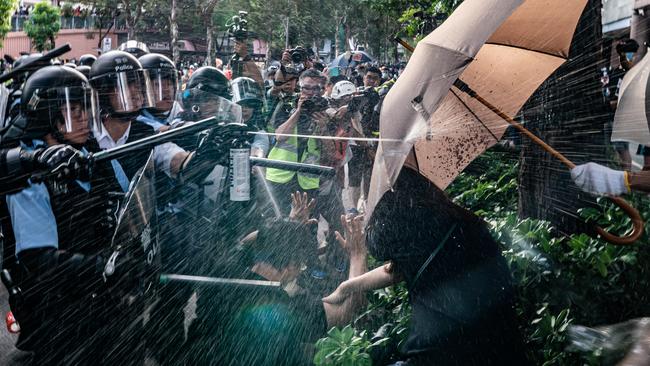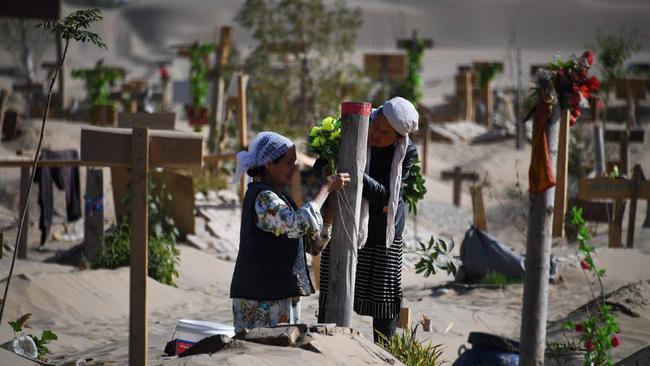Beijing gives Canberra a spray over Uighurs
China’s treatment of the Uighurs in western Xinjiang has become the latest strain on Australia’s relations with Beijing.

China’s treatment of the Muslim Uighurs in the western region of Xinjiang has become the latest strain on Australia’s relations with Beijing.
China has hit out at Australia and 21 other nations including Japan, New Zealand, Canada and from Europe, which signed a letter to the UN Human Rights Council last week criticising China’s treatment of Uighurs. It’s reported that more than a million Uighurs are being held in detention camps.
The letter urges China to “end its mass arbitrary detentions and related violations against Muslims in the Xinjiang region”.
China’s Foreign Ministry spokesman Geng Shuang issued a statement on Saturday attacking the signatory countries, saying they had “wantonly criticised and smeared China in total disregard for the truth”. “By blatantly politicising the issue of human rights, they have grossly interfered in China’s internal affairs,” he said.
China rejects criticism of the camps in Xinjiang, calling them “vocational education and training centres” that allow Uighurs to learn Chinese and vocational skills. The camps were set up in response to sporadic outbreaks of violence by some Uighur groups.
Beijing regards the camps as a success, arguing that they have helped restore law and order to the region and made it more attractive for business and tourism.
“In the past more than two years, not a single violent and terrorist incident took place in Xinjiang,” Mr Geng said.
His criticisms have been echoed in the Chinese media with the community party-owned populist Global Times newspaper accusing the 22 countries of “recklessly attacking” China’s governance of Xinjiang and “smearing” the centres. It’s editorial on Friday said the signatories were “making themselves unwelcome if they act as China’s teacher and force China to do things”.
UN ambassadors from 22 countries signed the letter last week that was sent to the UN Human Rights Council president, Coly Seck, and UN High Commissioner for Human Rights Michelle Bachelet.

It expresses concern “about credible reports of arbitrary detention (and) widespread surveillance and restrictions, particularly targeting Uighurs and other minorities in Xinjiang”.
It calls on China to stop arbitrary detention and allow freedom of movement in Xinjiang.
Australia’s support for the letter comes as its ties with China are still strained despite an attempted “reset” of the relationship with a speech by former prime minister Malcolm Turnbull last year and conciliatory efforts of the Morrison government.
China is still angry that Australia was seen as leading the way in banning Chinese telecommunications giant Huawei from supplying equipment for the next generational 5G network.
The move made in the last days of the Turnbull administration is a running sore on the relationship as no other country has publicly taken the same hardline position.
Australia’s stand is being used in a wider debate as Huawei battles to head off similar actions in other countries including Canada and Europe.
China was also upset that Scott Morrison chose to visit the Solomon Islands as his first overseas trip after the election.
The trip by the Prime Minister was seen in China as an attempt to influence the newly elected government in the Solomons not to switch its diplomatic allegiance from Taiwan to Beijing.
The Solomons is one of a handful of Pacific Island countries that still recognises Taiwan but its government is reconsidering the issue.
Mr Morrison was the first Australian prime minister to visit the islands since Kevin Rudd in 2008.




To join the conversation, please log in. Don't have an account? Register
Join the conversation, you are commenting as Logout